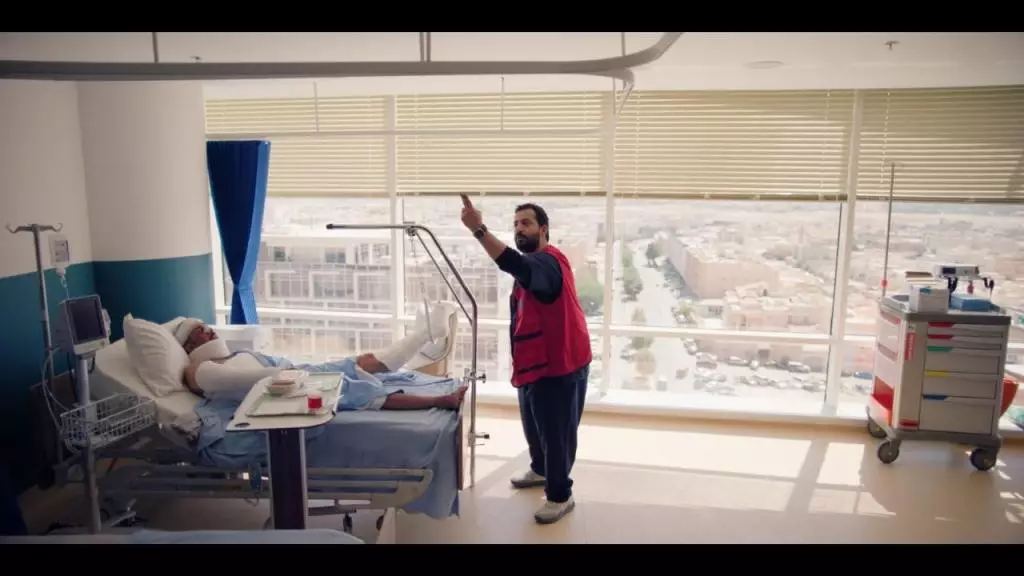The Saudi film industry is undergoing a transformative phase, embracing a diverse range of genres with a notable focus on comedy. A significant milestone in this evolution is the announcement of “Esaaf,” a debut comedy feature that marks a collaboration between budding talents and seasoned professionals within the Kingdom. This article delves into the film’s premise, explores its key players, and discusses the implications of its release on the Saudi market.
“Esaaf,” also known by its working title, follows the misadventures of two bumbling paramedics who find themselves entangled in a bizarre kidnapping plot. This premise sets the stage for a comedy that capitalizes on situational humor and character-driven storytelling, drawing viewers into a world where incompetence leads to unintended hilarity. The film’s setting, coupled with its uniquely Saudi themes, reflects an emerging trend that resonates well with local audiences, eager for stories that mirror their experiences.
The script, developed by British screenwriter Alberto Lopez, is designed to blend cultural nuances with humor that appeals to both local and international viewers. By incorporating elements that are relatable to Saudi audiences, “Esaaf” aims to carve out a niche within a market previously dominated by international blockbusters.
At the helm of “Esaaf” is director Colin Teague, a name that carries weight in the film industry due to his prior work with notable series like “Doctor Who” and “Being Human.” Teague’s experience in directing high-stakes narratives positions him well to guide the comedic elements of the film without compromising on quality. His previous involvement with Saudi productions, including the series “Rashash,” demonstrates his commitment to understanding and portraying the complexities of Saudi culture.
Ibrahim Al Hajjaj, known for his record-breaking comedy “Sattar,” plays a crucial role not only as a star but also as the force behind House of Comedy, the production company behind “Esaaf.” His transition from stand-up comedy to film production signifies a diversification of talent within the Saudi entertainment landscape. Al Hajjaj’s vision for the film revolves around authenticity and a genuine depiction of modern Saudi life, further amplifying the film’s appeal.
Peter Smith, the former head of MBC Studios, also adds significant value as an executive producer. With his extensive experience in international markets, Smith aims to establish a foothold for Saudi comedies that can stand alongside mainstream international films. His comparatives to Western action-comedy classics like “Bad Boys” and “Rush Hour” suggest a strategic intent to position Saudi cinema on the global stage.
The growing interest in local narratives, particularly comedies, signifies a shift in the cultural consumption habits of Saudi audiences. With “Sattar” achieving unprecedented box office success and surpassing international hits, there is tangible evidence of an appetite for homegrown content. Al Hajjaj’s assertion that “Esaaf” aims to contribute significantly to this genre underlines the filmmakers’ commitment to pushing the boundaries of comedy in Saudi Arabia.
As the Saudi film market continues to mature, the vision laid out by Al Hajjaj, Smith, and Talal Anazi is to release one to two comedy films or series annually. This consistent output could stimulate local talent, nurture growth in the industry, and provide fresh comedic perspectives that resonate with both the regional audience and potential international viewers.
The ambitious plans for “Esaaf” extend beyond its comedic narrative. As the filmmakers prepare for its release in April next year, they are also pivotal in shaping the future landscape of Saudi cinema. With an emerging emphasis on storytelling that encapsulates local flavors while appealing on a global scale, there is potential for Saudi comedy to become a distinct voice within the film industry.
“Esaaf” stands at the forefront of this evolution, potentially revolutionizing how local stories are told and perceived. If successful, it promises not only to entertain audiences but also to pave the way for subsequent generations of Saudi filmmakers, setting a precedent for creative collaboration that acknowledges the region’s rich cultural tapestry.
As the film industry in Saudi Arabia continues to evolve, projects like “Esaaf” exemplify a hopeful outlook where laughter becomes a universal bridge, connecting the unique stories of Saudi people to audiences around the world.
